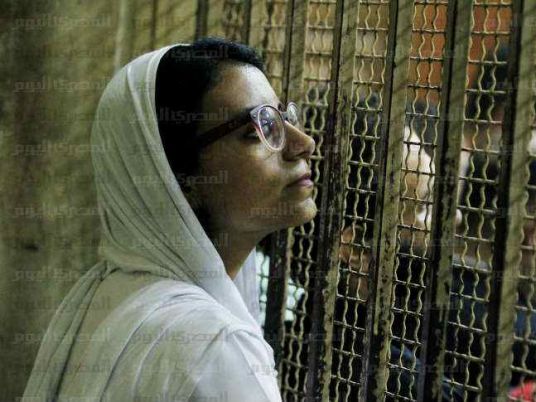
Amnesty International has accused the Egyptian authorities of jailing young activists to quell unrest under one of the toughest crackdowns in the country's history.
In a report released Tuesday called "Generation Jail: Egypt's youth go from protest to prison," Amnesty looked at the cases of 14 young people among thousands it said were arbitrarily imprisoned in Egypt in the past two years in connection with protests.
Amnesty and other human rights groups have criticised what they call repressive policies under Egyptian President Abdel Fattah al-Sisi, who as army chief toppled Islamist President Mohamed Morsi in 2013 after mass protests against his rule.
"By relentlessly targeting Egypt's youth activists, the authorities are crushing an entire generation's hopes for a brighter future," said Hassiba Hadj Sahraoui, deputy director of the Middle East and North Africa programme at Amnesty International.
After the 2011 uprising that toppled veteran autocrat Hosni Mubarak, youths were seen as potential engines for change.
"Yet, today, many of these young activists are languishing behind bars, providing every indication that Egypt has regressed into a state of all-out repression," said Sahraoui.
Foreign Ministry spokesman Badr Abdelatty denied that Egypt is targeting youth activists in a crackdown on dissent.
"It's nonsense… the whole revolution of the 30th of June was about empowerment of youth and building a new democracy," he said.
Amnesty International had lost its own credibility by relying on "uncredible sources" for its information, Abdelatty added.
After Morsi's ouster, security forces cracked down hard on his supporters and then rounded up liberal activists.
Amnesty said more than 41,000 people have been arrested, charged or indicted with a criminal offence or sentenced to unfair trials, citing Egyptian human rights groups.
Abdelatty said that number was "not true at all."
"And it raises questions of the real intentions and the real motives of this organisation."
The rights group alleged that not a single member of the security forces has faced criminal charges over the deaths of hundreds of Morsi supporters at Cairo protest camps on August 14, 2013.
Amnesty cited the case of Mahmoud Mohamed Ahmed Hussein, who it said was 18 when he was arrested on his way home from a protest because of the slogan on his T-shirt.
"According to his family and lawyers he was tortured to 'confess' to terrorism-related activities," it said.
"He spent his 19th birthday in prison and has now spent more than 500 days without charge or trial."
Authorities deny all allegations of torture and abuse.
Abdelatty said: "Everybody is in detention based on a decision made by the public prosecutor, so everything is within the rule of law."
"… all detention centers and prisons are under the full jurisdiction of the public prosecutor's office."
While Egypt's Western allies have called for democracy in Egypt, they have not taken tangible measures to promote it, Amnesty said.
"World leaders are breaking the pledges they made to stand by Egypt's young people when Mubarak fell in February 2011. Egypt is jailing peaceful activists while the international community looks the other away," said Amnesty.
The group "strongly denounced" the killing of public prosecutor Hisham Barakat whose convoy was hit by a car bomb in Cairo on Monday.
"If the rule of law is to prevail in Egypt, judges and prosecutors must be free to do their job without the threat of violence," Amnesty said, and urged authorities not to respond with repression.




